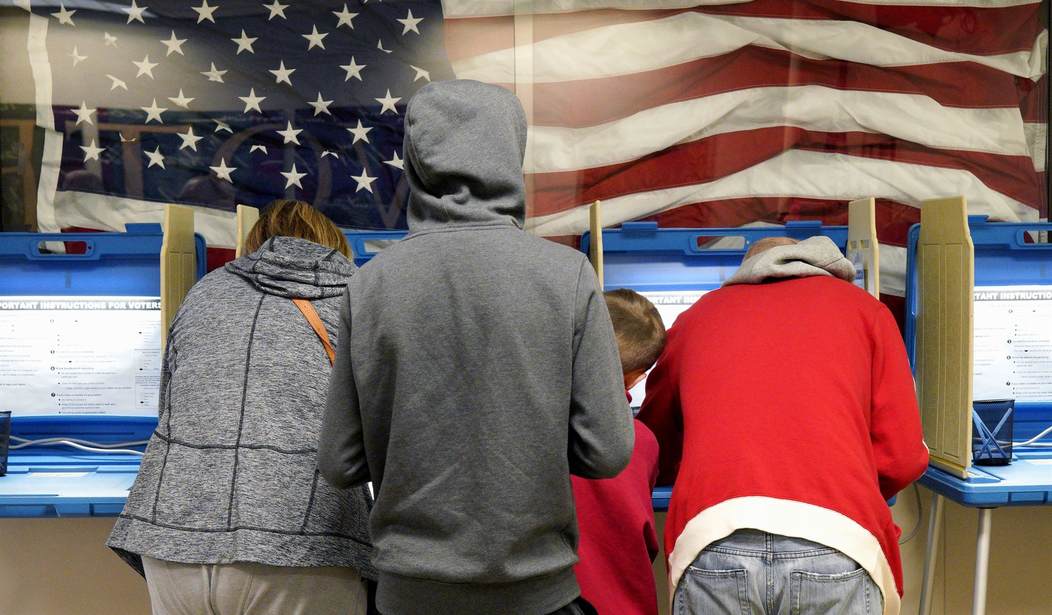Hello, everyone. I’m on vacation, but I wanted to chime in on the market. Right now, it’s all about the clouds of uncertainty, and I think thoughts of a recession have surpassed the Fed and China trade skirmish. I’m in Europe, and I can attest to it being slower than usual, but the United States has been the exact opposite.
The question remains whether the economic moat around the U.S. has gotten smaller or not, and how vulnerable the states may be about global deterioration. There is economic evidence now, which brings back the debate over the market action versus the data.
Last Technical Hope
The Dow Jones Industrial Average closed at a perfect 52-week double bottom. It is a reliable oversold technical indicator, but it never feels that way, and it certainly doesn’t this time around. Of course, holding is one thing, but eventually, the ultimate buy signal comes from taking out tops.
The market is a long way from the luxury of breakouts. If this support level doesn’t hold, the next level down for the Dow is 23,580.
Momentum stocks, which tried to lead the way last week, were hammered, as most investors are now selling the remaining few 2018 winners left. Interestingly, the second worst sector was Utilities (XLU), which is normally the safe haven
Flight to Safety
Instead, investors flocked to bonds, pushing the 10-year yield to 2.86 -as all eyes shift to the Federal Open Market Committee (FOMC) gathering amid the never-before-seen public pressure from the White House. I don’t think the Fed should make any move to appease or anger the White House, although it’s not unusual for Wall Street to push the Fed around with massive pre-FOMC selling.
Recommended
Of course, yesterday’s session saw additional pressure when ‘Bond King’ Jeffrey Gundlach talked about a long-term bear market in the second leg down, as a result of government debt rising and greater tightening by the Fed. In other words, he took a shot at the White House and the Fed.
The selling is excessive as quality names are taken to the woodshed from the aforementioned panic selling to ‘ring the register’ and ‘margin calls,’ but I agree with Gundlach. That so-called passive investing, which can put the market and certain stocks on autopilot on the way up, feeds on itself on the way down.
I’ve been through every kind of market there is, and I can say investors should take care not to panic with the quality names in their portfolios.
I’ve been stressing raising cash for over a month, so everyone should have some dry powder.
Today’s session
Dow futures are pointing to a higher open of approximately 200 points. Boeing (BA) is accounting for close to 50 of those points. Yesterday, after the close, Boeing announced its Board of Directors approved a 20% increase to its existing dividend and approved the authorization of a new $20 billion share repurchase program. BA is trading higher by close to $8.0, 2.5%, in pre-market trading. Oracle (ORCL) is also trading higher in the pre-market by 5.4%, $2.50, after reporting earnings. The company reported that it bought back $10 billion in stock during the quarter, reducing its shares outstanding by 12% in the last year.
On the economic front, the recently released growth forecast for oversees were lowered:
- Italy lowered its 2019 GDP growth forecast to 1.0% from 1.5%
- Japan lowered its 2019 growth forecast to 1.3% from 1.5%
- Switzerland lowered its GDP growth forecast for 2019 to 1.5% from 2.0%
In the U.S., housing starts rose 3.2% in November. The increase was led by apartment construction, as single-family starts declined 4.6%. Year-over-year single-family starts are down 13.1%. Weather may have played a factor in housing starts. Home construction in the West fell 14.2% and may have been affected by wildfires in California. While homebuilding in the South increased 15.1% following Hurricanes Florence and Michael.

























Join the conversation as a VIP Member